PSHE at Old Sarum Primary
Intent – vision
At Old Sarum Primary school we ensure there is a comprehensive PSHE and SRE curriculum which responds to the needs of our children and the wider community. This means all children receive a broad, high quality, age appropriate and relevant PSHE curriculum inclusive of all statutory content, including Sex and Relationships Education and a positive mental health focus from Year R to Year 6.
We want children to have the understanding and tools to ‘look after their brains’, reflect on their character strengths: to increase confidence, self-esteem, resilience, empathy, tolerance and independence. We want our children to develop the skills needed to understand their own emotions and well-being so they have the ability to self-regulate and develop positive relationships. In parallel, our PSHE curriculum plays a pivotal role in helping children to understand their place in the wider world and how to be active citizens within their communities who know how to ‘make a difference’.
Implementation – how we teach
Every Monday we start the week with a myHappymind session centred around 5 key themes of: Meet my Brain, Engage, Celebrate, Relate, Appreciate. My Happy Mind is grounded in positive psychology and neuroscience. Teaching is science- based and encourages embedding good habits around mental well-being. Themes are revisited throughout the week and children are encouraged to make individual reflections in their personal diaries to promote personal growth.
PSHE is also taught throughout each term as part of a spiral curriculum revisiting key concepts and understanding over time-promoting positive and successful citizenship, helping to prepare our children for their next steps in the wider world. Our PSHE curriculum is designed to proactively safeguard, empower and protect our children, to prepare them for the many situations, issues or dilemma’s they may encounter in the wider community.
Key stage 1 and 2:
- Families and relationships
- Health and wellbeing
- Safety and the changing body
- Citizenship
- Economic wellbeing
Each area is revisited to allow children to build on prior learning. The lessons also provide a progressive programme. The lessons are based upon the statutory requirements for Relationships and Health education, but where our lessons go beyond these requirements (primarily in the Citizenship and Economic wellbeing areas) they refer to the PSHE Association Programme of Study which is recommended by the DfE.
Sex education has been included in line with the DfE recommendations and is covered in Year 6 of our scheme.
Our curriculum supports the requirements of the Equality Act through direct teaching, for example learning about different families, the negative effect of stereotypes and celebrating differences, in addition to the inclusion of diverse teaching resources throughout the lessons.
A range of teaching and learning activities are used and are based on good practice in teaching RSE/PSHE education to ensure that all children can access learning and make progress. In key stage 1 and 2, there is an introductory lesson at the start of each year group which provides the opportunity for children and teachers to negotiate ground rules for the lessons. These introductory lessons can then be referred to throughout the year to help create a safe environment. All lessons include ideas for challenge and support as deemed necessary. Many lessons, stories, scenarios, and video clips provide the opportunity or children to engage in real life and current topics in a safe and structured way. Role-play activities are also included to help children play out scenarios that they may find themselves in.
RSHE is enhanced by a supportive school ethos where everyone is valued and positive relationships are promote.
Impact – what this means for our children
All children will know about(in an age-appropriate way)
- Families and the people who care for them.
- What a caring relationship looks like.
- What is a respectful relationship is
- How to be safe at home, school and online.
- How to support and recognise their own mental well-being.
- The importance of physical health and fitness through healthy eating.
- The risks of drugs alcohol and tobacco.
- The importance of health, prevention, and the use of first aid
- How our bodies change and changes in puberty.
Impact is constantly monitored through formative assessment, summative assessment and pupil voice. Each unit of lessons comes with an Assessment quiz and Knowledge catcher. The quiz contains 10 questions, nine of which are multiple-choice and can be used either at the end of the unit. In addition, each child has their own well-being journal which is used weekly.
